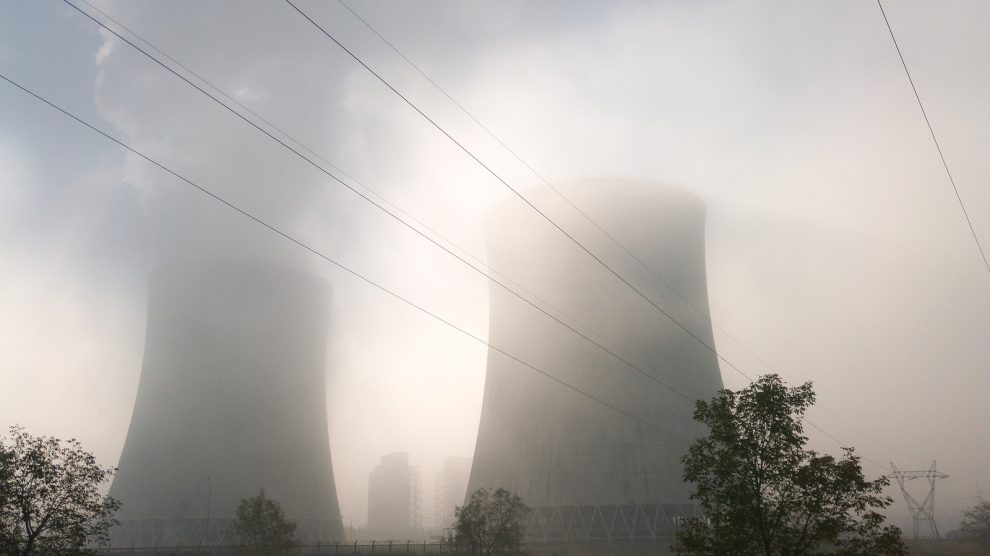Dereliction of law enforcement duties by governments in the Western Balkans again led to an increase in sulphur dioxide (SO2) pollution from the region’s antiquated coal power plants in 2023. Dust and nitrogen oxides (NOx) pollution from coal plants also continued to exceed legal limits.
Six years since pollution control rules came into force under the Energy Community Treaty, sulphur dioxide emissions from coal plants included in the National Emissions Reduction Plans (NERPs) of Bosnia and Herzegovina, Kosovo, North Macedonia and Serbia were still collectively 5.7 times as high as allowed in 2023.
This figure marks a step backwards from 2022, when they were 5.6 times as high.
- The challenge of financing low-carbon, climate-resilient investments in emerging economies
- In CEE, policy stifles private investment in energy, and hinders the fight against climate change
- Serbia eyes role as hub of Europe’s EV sector
A major new report, Comply or Close, published this week by Bankwatch, the largest network of grassroots, environmental and human rights groups in Central and Eastern Europe, suggests that the blame for the increase can be placed squarely at the foot of the region’s governments.
“Governments and utilities are intent on squeezing every last kilowatt out of their ageing coal power plants, regardless of the health costs,” says Davor Pehchevski, Balkan energy coordinator at Bankwatch.
“The countries’ national energy and climate plans (NECPs) must set out how and when coal will be phased out, but so far, most do not. In North Macedonia, closures are being delayed with no action being taken to address pollution in the meantime. Utilities can’t have it both ways—coal plants must either close immediately or comply until they close.”
The highest absolute emitter of SO2 in 2023 in the region was at Ugljevik in Bosnia and Herzegovina, with 97,189 tonnes.
Its operator, a subsidiary of Elektroprivreda Republike Srpska, has spent at least 85 million euros, financed by a Japan International Cooperation Agency loan, on a desulphurisation unit, but following a series of technical problems, now admits it is not working, partly because it is an ‘economic burden’.
Fellow repeat offender Kostolac B in Serbia had finally started to decrease its SO2 emissions in 2021, but has increased them since then, emitting nearly 5.8 times as much as allowed in 2023.
Either the desulphurisation unit, financed by the China Eximbank and installed by the China Machinery Engineering Corporation (CMEC), is not being used much, or it is underperforming.
Breathing space
Dust pollution from NERP coal plants across the region was nearly 1.75 times as high as allowed in 2023—only a minor decrease from 1.8 times in 2022. Nitrogen oxides pollution also totalled 1.3 times as much as allowed. For the first time, Serbia joined Kosovo and Bosnia and Herzegovina in breaching its NOx limit.
In addition to the NERP breaches, at the end of 2023, the deadline for closing the smallest and oldest plants under the ‘opt-out’ limited lifetime derogation expired. All three countries in the Western Balkans with coal power plants subject to this rule—Bosnia and Herzegovina, Montenegro and Serbia—are now breaching it, as all the plants are still operating.
Montenegro’s Pljevlja plant has been running illegally since late 2020, and in 2022 was joined by Tuzla 4 and Kakanj 5 in Bosnia and Herzegovina and Morava in Serbia. Morava’s operator, Elektroprivreda Srbije (EPS), plans to run it until 2026, along with another opt-out plant, Kolubara A.
The Energy Community Secretariat has opened several infringement-type cases against the countries but not a single government has imposed penalties on the coal plants in question.
Nor do they have clear, updated and realistic plans for compliance and/or closure.
‘A sobering reality check’
At a time when EU leaders appear confident in Serbia’s ability to manage the environmental impacts of lithium mining, the report provides a sobering reality check about environmental law enforcement in the region, suggests Pippa Gallop, Southeast Europe energy policy officer at Bankwatch.
“The European Commission’s inability to ensure compliance with EU pollution control legislation puts a major dent in the EU’s image in the region,” she says. “The new Enlargement Commissioner must tackle
this head on.”
In July, Serbia restored Anglo-Australian mining company Rio Tinto’s licence to extract Lithium in the Jadar Valley in the west of the country.
Serbia’s government said a previous decision to block the project in 2022 was “not in line with the constitution and the law”.
The EU hailed it as a “historic day for Serbia, as well as for Europe”. The 2.4 billion US dollars project, which Serbian leaders say could start operating as soon as 2028, would meet most of the EU’s demand for lithium, a key component in batteries for electric vehicles.
Since the project was given the green light, however, thousands of people have taken to the streets of towns and cities across Serbia in protest, fearing that the mine could pollute water sources and endanger public health.
Bankwatch’s report suggests that they might just have a point.
Unlike many news and information platforms, Emerging Europe is free to read, and always will be. There is no paywall here. We are independent, not affiliated with nor representing any political party or business organisation. We want the very best for emerging Europe, nothing more, nothing less. Your support will help us continue to spread the word about this amazing region.
You can contribute here. Thank you.


